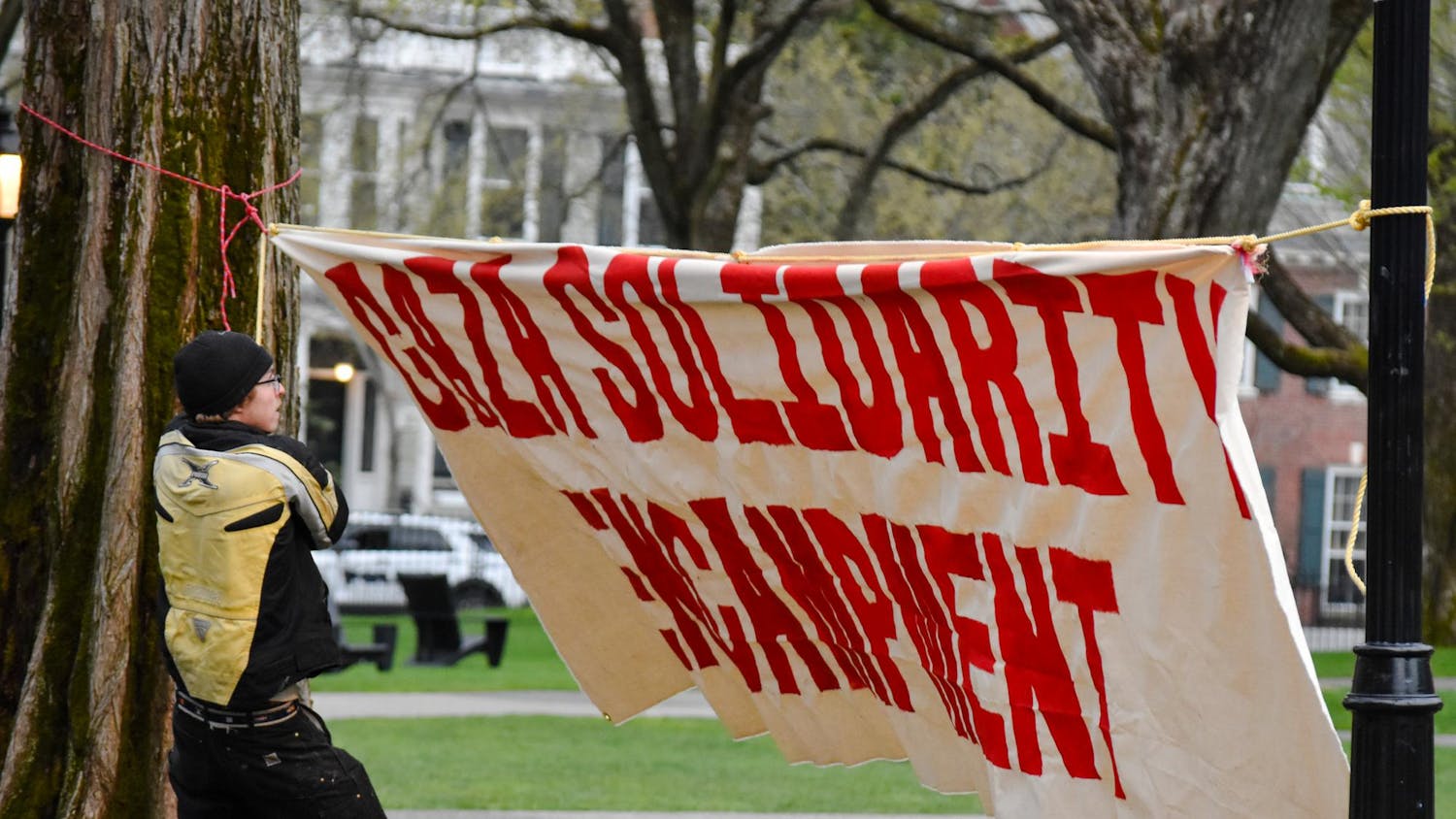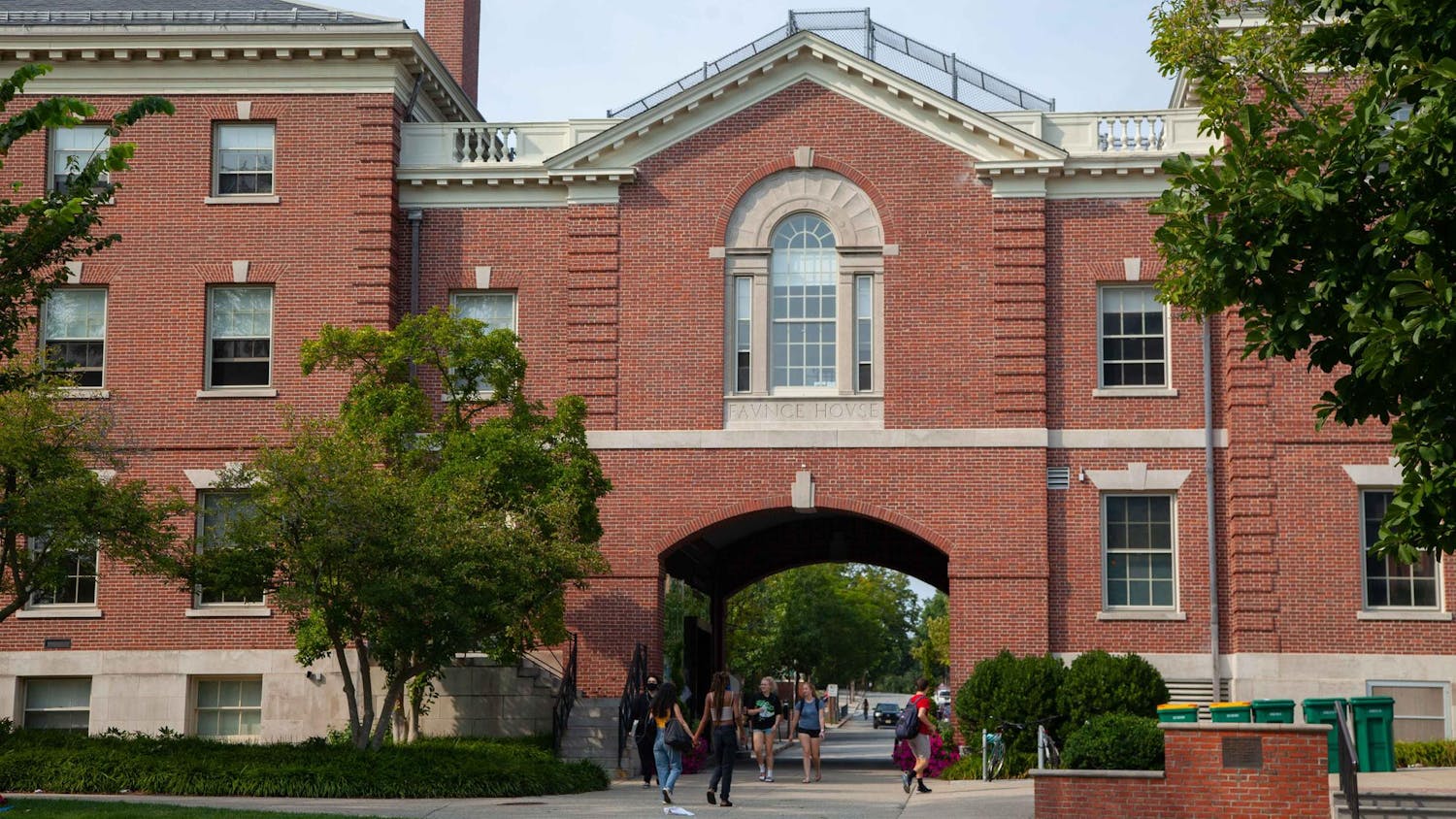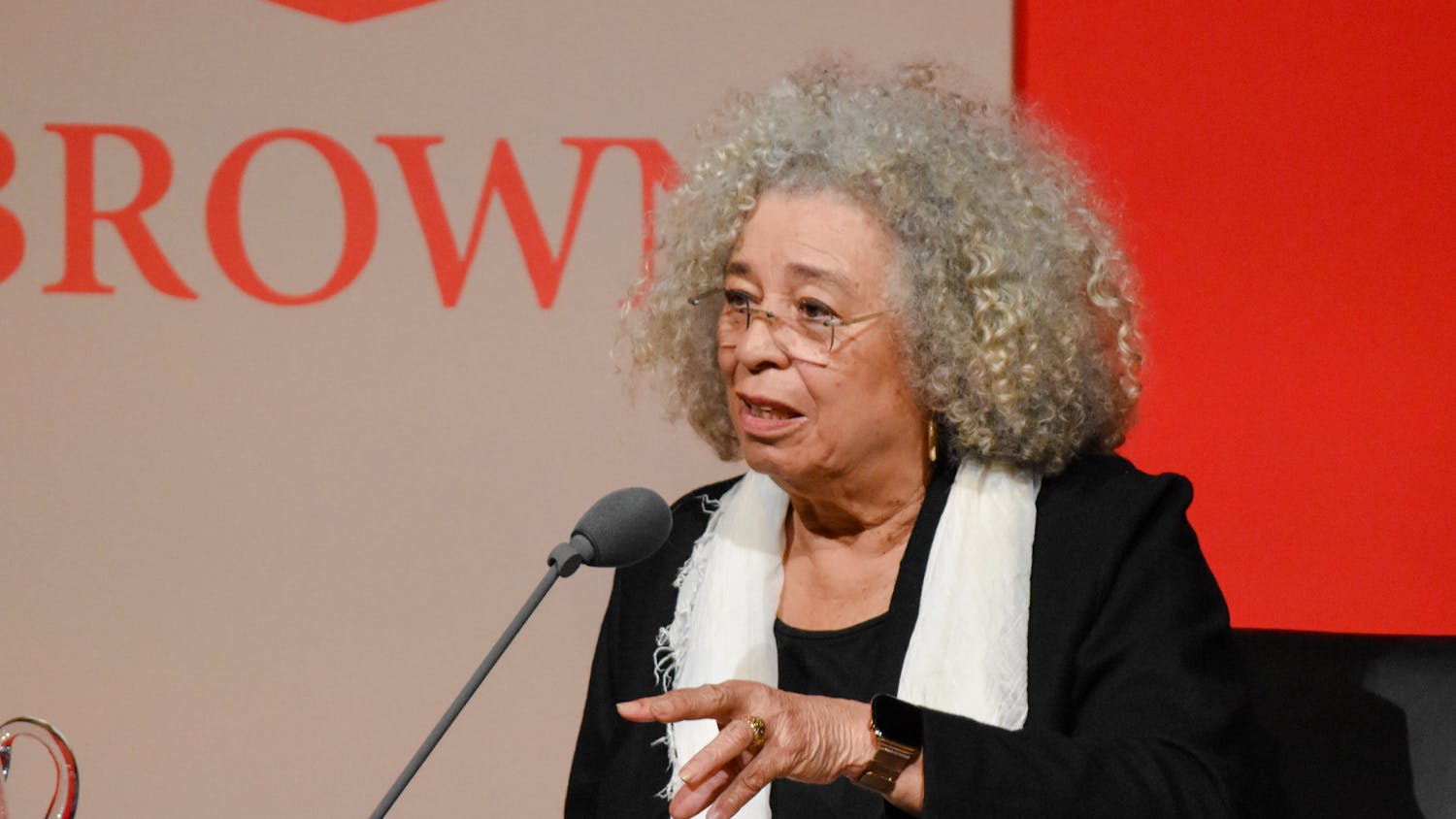A panel of academics highlighted the past and present impact of religion on U.S. politics during a discussion last night about the potential effects of Republican presidential nominee Mitt Romney's Mormon faith on the 2012 presidential election. The forum was held in Rhode Island Hall and was moderated by Nathaniel Berman, professor of international affairs, law and modern culture.
"Probably since 1960, there's been no election in which the religious background of both candidates has generated so much controversy as this one," said Berman, citing Romney's Mormon faith and false rumors that President Obama is a Muslim as examples. In 1960, President John F. Kennedy's Catholic faith was considered a possible barrier to gaining the presidency.
But Berman said national media has recently seemed unconcerned about the impact of the candidates' religious views on politics. "Today, just two weeks before the election, there's almost no talk about it," he said.
Mark Cladis, professor of religious studies and one of the three panelists, said the question of religion and politics has a deep and complicated history in the United States, especially during presidential election years.
"I think there should be a generous role and place for religions in democratic politics," said Cladis, adding that religion should be just one of several factors that shape voter perception of politicians. "There's nothing exceptional about religious belief and politics," he said.
When listening to politicians who offer religious reasons for a particular position, voters should evaluate the merits of the issue at hand rather than make global judgments about a candidate's religion, Cladis said.
"While I acknowledge our justified fears about religion in politics, I maintain that attempts to exclude religion from the political sphere are misguided," Cladis said. "In the ballot booth, we want to see the self-reliant citizen who doesn't disqualify candidates based on religious beliefs."
Voters can sometimes be too exclusionary when assuming that all religion is irrational, superstitious and undeserving of a place in U.S. politics, Cladis said. He cited continuing anti-Muslim and anti-Mormon sentiments among Americans as proof that religious bias remains a political problem.
Voter treatment of Roman Catholics provides a striking example of progress toward religious tolerance in presidential politics, Cladis noted. The country has come a long way from the 1960 election, when Kennedy had to overcome widespread anti-Catholic bias to win the White House, he added.
In the 2012 election, voters have taken note of the ideological differences between Vice President Joe Biden and Republican vice presidential nominee Paul Ryan despite their shared Catholic faith. "Citizens are not dismissing these candidates simply because they're Catholics," Cladis said. "That's a sign of democratic politics."
Linford Fisher, assistant professor of history, provided historical context for the role of religion in U.S. politics, tracing battles over religious influence back to the colonial period. He noted that colonial societies were organized around Protestant dogma, especially in Puritan New England, but the U.S. Constitution changed this dynamic.
"I think we forget how radical this was in the context of the 18th century," Fisher said, referring to the Constitution's ban on religious qualifications for federal office and the First Amendment's support for the freedom of religion. But he added that religious biases against non-Protestant candidates continued through American history.
"These issues didn't go away," Fisher said. "From the colonial period to the present, in many ways, religion has always figured in our elections."
Fisher added that in addition to featuring the first Mormon nominee of a major party, the 2012 election marks the first time there is no Protestant on the Republican Party's ticket. According to Fisher, this development coincides with another major milestone for a country where Protestants long held a large advantage in winning elected office. This year, the number of Americans who identify as Protestant dropped below 50 percent.
Melissa Proctor, a PhD candidate in religious studies who has also been a visiting lecturer on Mormonism at Harvard Divinity School, followed Cladis and Fisher with a discussion of how Romney's Mormon faith affects the Republican contender's quest for the presidency.
"Romney wants to stake his character and values on his religious beliefs while wanting nobody to ask what those beliefs are," Proctor said, explaining that Romney has shied away from publicly discussing the details of his Mormon faith for fear of alienating anti-Mormon voters. Proctor added that 50 percent of voters in a November 2007 poll expressed discomfort with supporting a Mormon presidential candidate, an increase of 33 points from 1968, when only 17 percent of voters admitted to having "problems" with voting for a Mormon.
Proctor linked the increase between 1968 and 2007 in the proportion of voters with fears about a Mormon president to the national media's coverage during the 2008 presidential campaign, which focused on whether Mormonism would hurt Romney's candidacy.
"It puts the issue center stage," Proctor said, adding that the media's narrative of deep anti-Mormonism among conservative southern Baptists was challenged by the significant number of evangelicals who have endorsed Romney this year, as well as during his bid for the Republican nomination in the 2008 presidential race.
Proctor also discussed the growth of another key demographic group - the "nones,"or religiously unaffiliated voters, who she said account for 32 percent of all Americans under the age of 30. "If you aren't religiously affiliated, you actually are less likely to be against certain religions," Proctor said.
Clarification: This article has been updated to clarify that Melissa Proctor was discussing the link between the media's coverage of anti-Mormon sentiment toward Mitt Romney's candidacy in 2008 and the rise in the number of voters expressing discomfort with a Mormon president as measured in public opinion polls. She was not referring to the media's coverage of Mormonism as a negative factor in the 2012 campaign, an election season that she said has featured much less discussion of Mormonism.




